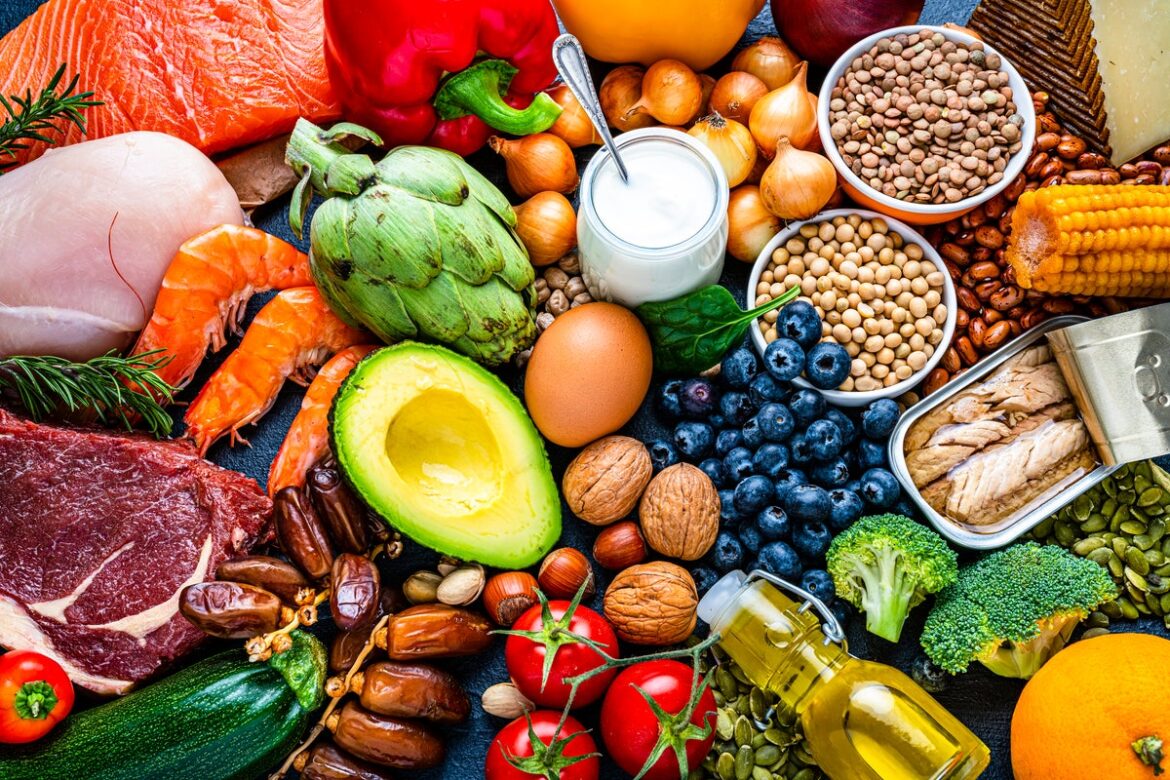Scroll through TikTok, flip through the latest nutritionist’s cookbook or tune into morning TV and you’ll be bombarded with praise for the Mediterranean diet.
Touted as the ultimate blueprint for healthy eating, it’s plant-forward, low in meat and fish, and virtually free of ultra-processed foods. Rich in fibre, healthy fats and antioxidants. It’s a diet which has been linked to better gut health, longer life and lower risk of chronic disease – and it underpins the world’s so-called blue zones, where people frequently live to 100 and beyond.
Yet in the countries where it was born, it’s becoming less popular.
“Spain and other parts of southern Europe are famous because of the Mediterranean diet,” says Dr Rubén Fernández-Rodríguez, a nutritional psychiatrist and researcher at the University of Granada, “but our diets are shifting because of convenience, the price of whole plant-based food, and because we don’t have time to cook. We live fast. We need fast things ready to go.”
There’s a growing irony at the heart of the Mediterranean diet’s global fame: while it’s praised as a model for healthy, sustainable eating, its own future is increasingly under threat – and the very thing blamed for its decline might also hold the key to its survival.
According to a 2023 report published in the journal Sustainability, just 24 per cent of Italians and 20 per cent of Greeks followed a Mediterranean-style diet pattern in recent years, with Spain faring only slightly better at 28 per cent.
The consequences? “An increase in chronic, non-communicable disease,” says Fernández-Rodríguez. “Specifically, the most concerning ones are cardiovascular disease, but also mental health disorders. This is related to climate change and how biodiversity is decreasing in our world – but also to our guts because of the foods and the environment.”
Southern Europe, once a blueprint for healthy living, is now facing rising obesity and child health challenges. In Spain, over 40 per cent of children are overweight or obese; in Italy, one in three children are either overweight or obese before the age of eight. Across the Mediterranean, UPF consumption is on the rise – and so are rates of diabetes, anxiety and depression.
UPFs are industrial products made with additives, preservatives and synthetic ingredients, using methods far beyond home cooking. They now make up 56 per cent of the UK diet – one of the highest rates in Europe – and consumption is rising across southern Europe too.
Diet-related disorders are now the fourth leading cause of disease burden among the living population, according to Fernández-Rodríguez. And health isn’t the only issue. The Mediterranean basin is experiencing rapid ecological degradation – and its effects are creeping into the food system. “Climate change is critically impacting our lives,” Fernández-Rodríguez says. “Not only in the way food is produced, but also in the crops themselves.”

open image in gallery
In Britain, UPFs now make up 56 per cent of our diet (Getty/iStock)
He points to a stark example: “The food that is grown in poor [quality] soils has much less nutrient density. Maybe you’ll need 20 carrots from poor soil to equal the nutrients of one carrot from high-biodiverse soil.”
This matters in countries where time, money and nutrition knowledge are scarce. Legumes, for instance, can cause gut discomfort when fibre intake rises too fast – meaning that making a gradual change is key, Fernández-Rodríguez says.
Nutrition literacy is low, especially among younger people. University students in particular are vulnerable because of stress, the distance from home and the need to suddenly fend for themselves in the kitchen. “This is a critical period,” he says.
Social and cultural factors also shape how people approach food; while high-end salted steaks and smash burgers are a craze on TikTok, so is exposure to new ways of eating. “For example, women and young women are more likely to try plant-based meats. Men are not so likely. There is research to suggest that fragile masculinity plays a role.”
UPFs have long been blamed for many of the health problems outlined above. But there’s nuance – particularly when it comes to plant-based UPFs.
Our diets are shifting to more Westernised dietary patterns because of convenience, the price of whole plant-based food, and because we don’t have time to cook. We live fast. We need fast things ready to go
Dr Rubén Fernández-Rodríguez
Plant-based meats are classed as ultra-processed under the Nova food classification system – but, as The Good Food Institute points out, many differ from typical UPFs: they’re often higher in fibre, lower in saturated fat and contain less sugar.
In fact, studies show that replacing red and processed meat with plant-based alternatives can improve key health indicators such as cholesterol levels, blood pressure and weight management.
“Are plant-based meats ultra-processed food,” asks Fernández-Rodríguez. “According to the NOVA classification, yes. But does this mean it’s a bad food to include in our diet? Well, we have to see why plant-based meat exists – it’s to replace ultra-processed meat options.”
That replacement matters. Red and processed meats – particularly sausages, bacon, ham and salami – have been strongly linked with increased risks of colorectal cancer, heart disease and early death. The World Health Organisation classifies processed meat as a Group 1 carcinogen and red meat as “probably carcinogenic”. Environmentally, meat and dairy account for around 14.5 per cent of global greenhouse gas emissions – more than all cars, trains and planes combined.
This debate is at the heart of wider policymaking tensions. While high UPF consumption is consistently linked with negative health outcomes – from heart disease to cancer – the mechanisms driving these associations are not yet fully understood. Yet in the absence of clear strategies from business or government to promote healthier alternatives, UPFs continue to fill the gap.
A short-term trial Fernández-Rodríguez worked on found that people who replaced meat with plant-based meat alternatives for eight weeks experienced improved cardiometabolic outcomes, including reduced LDL (“bad”) cholesterol and total cholesterol.
“If you want to try to reduce your meat consumption, that should be the simple message,” he says. “It’s going to be better for your health, and it’s going to be definitely better for the environment.”
These products are far from perfect. “Maybe not all of them are as nutrient-dense as we would like,” he admits. “But some processing allows us to better digest the legumes included. And we can reinforce nutrients – we can add vitamin B12, iron, vitamin D – which are often low in both plant-based and omnivore diets.”

open image in gallery
The climate crisis is draining the Mediterranean – and stripping nutrients from its soil (AP)
Fernández-Rodríguez points to research from the Good Food Institute showing that many plant-based meats, despite their processing, score better than conventional processed meats on key health indicators.
“There is room for improvement,” he says. “But in a couple of years, the options are going to be better, tastier, and more people are going to try them.”
If progress feels slow, Fernández-Rodríguez blames more than just the market. In Spain, Italy and elsewhere across southern Europe, the rise of right-wing governments is reshaping the food system in ways that may run counter to both health and sustainability.
It’s a striking contradiction: nationalist and conservative parties often position themselves as defenders of tradition – and yet one of the region’s most historic cultural assets, the Mediterranean diet, is being allowed to erode. Policies continue to favour more industrial food production, livestock farming and processed foods, like the American diet, while the cost of home-grown fresh produce and whole grains climbs higher.
Earlier this year, Spain’s left-leaning parties endorsed the Plant-Based Treaty, a global initiative aimed at promoting sustainable diets. But resistance was swift – not just political, but commercial. The dynamic isn’t limited to southern Europe either. In the United States, the politicisation of food has long skewed public health messaging and dietary policy. Donald Trump has derided plant-based eating while praising Diet Coke and “real” sugar on the campaign trail.
A new school policy in Spain aims to introduce vegetarian or vegan meals two to three times a week has been a shift, but not a full solution. “It’s not as good as I’d like,” Fernández-Rodríguez says. “Still, at least it’s a change.” Meanwhile, in Italy, agricultural subsidies still largely support livestock production, despite the fact that meat and dairy account for more than 60 per cent of agricultural greenhouse gas emissions in the Mediterranean area, according to the Sustainability paper.

open image in gallery
Plant-based meats aren’t perfect but they might be better than the real thing (Getty)
Powerful food lobbies, cultural identity politics and party lines are colliding with the need to eat better – and the Mediterranean diet is getting caught in the crossfire. So where do we go from here? Fernández-Rodríguez believes the key lies in education – and a possible rethink of what the Mediterranean diet really means.
“We need more nutrition knowledge in schools, where the children are really young. This impacts the whole family, the whole community,” he says. “And we need political change that promotes and helps healthy foods for people – food for the community – but also supports regenerative agriculture, or agriculture that is not damaging our soils.”
He’s optimistic that if UPFs are here to stay, healthier processed foods will play a role in the future. “Hopefully, in the next few years, we are going to see better plant-based foods that could help us shift to a more plant-forward diet. We have the knowledge. But something is blocking that knowledge from being implemented. We need to keep pushing.”
And so the irony remains: the very products blamed for eroding the Mediterranean way of eating – ultra-processed foods – may yet provide the tools that help preserve it. If we can harness them wisely, improve their nutrition and shift policy to support better choices for the environment, then the thing that once looked like the problem could become part of the solution.


Dining and Cooking